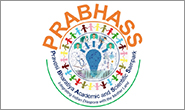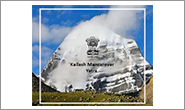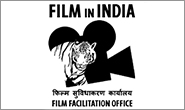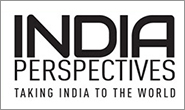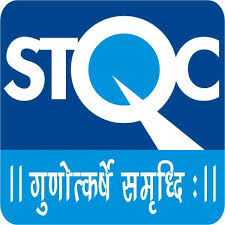Remarks by Ambassador Shri. Ashok K. Kantha at the BRICS University President' Forum 10/17/2015
1. Your Excellency Yuan Guiren, Minister of Education, PRC, Madame Liu Chuansheng, Chairperson,Council of Beijing Normal University, My colleagues Excellencies, Ladiesand Gentlemen.
2. First of all, I would like to felicitate Beijing Normal University and Beijing Municipal Commission of Education for hosting the BRICS University Presidents’ Forum to facilitate sharing of thoughts and views to take forward the momentum generated by the Seventh BRICS Summit at Ufa,Russia in July 2015.
3. The BRICS is a forward-looking and progressive platform to catalyze the ‘future potential’ inherent in large emerging economies for global development. We in India attach high importance to BRICS as a proactive instrument for promoting global economic growth, peace and stability.
4. The BRICS grouping has played an increasingly important role in responding to emerging challenges,ensuring peace and security, promoting development in a sustainable way, and addressing poverty eradication, inequality and unemployment for the benefit of our people and the international community.
5. This year has been particularly significant for the BRICS with two new financial institutions being created - the New Development Bank (NDB) and the Contingent Reserves Arrangement. It is a matter of great satisfaction for us that the NDB, announced at the BRICS Summit in New Delhi in 2012, has become a reality, with its headquarters at Shanghai. We have proved the sceptics wrong and shown that the BRICS family can walk the talk.
6. At the same time, we also realize that the grouping needs more meeting points beyond trade, capital flows, and security inorder to build greater cohesion. Education, culture and people to people contact could provide the necessary reinforcement to augment cooperation andcoordination. This was brought out by the Prime Minister Narendra Modi at the BRICS Summit in Ufa, when he proposed the “DAS KADAM” or “10 STEPS” towards enhancing cooperation.
7. Many of the concrete ideas proposed by Prime Minister Modi at Ufa and the previous Summit at Fortaleza will be relevant for discussions at this Forum. These include a BRICS University with campuses in each member country as well as research collaboration andfaculty exchange, a BRICS Railway Research Centre, a BRICS Agricultural Center, a BRICS digital initiative, setting up Massive Open Online Courses to make quality education accessible to all, and tapping the potential of the BRICS countries as seed beds of innovation andexperimentation through a common forum for sharing successful experiences.
8. We commend these ideas for exploration at this Forum as human resource development is a sector where there is immense scope for cooperation within the grouping. The BRICS countries are at present more engaged in collaboration in higher education with developed countries.Cooperation among the BRICS countries is growing but remains relatively limited.Therefore, government initiatives and public action are needed to nurture the requisite echo-system and indeed the habit of working together.
9. Today’s gathering is taking place at a time when the economies of BRICS members are under varying degrees of pressure. At a time when global volatilities and fragile conditions are achallenge for emerging economies like ours, we are cognizant of the fact that knowledgeis at the core of economic development and growth, an instrument for expanding human capacities and enlarging access to better living conditions. In recent years, the growth of the knowledge economy has gained momentum with rapid globalization of ideas and acceleration of technological advancement. Nations are increasingly placing knowledge at the center of their economic growth models,pushing the envelope on knowledge frontiers to create wealth, enrich human development, drive competitiveness and meet strategic national objectives.
10. Recognizing this, the Sustainable Development Goals agreed upon recently have placed high priority to education and innovation. Goal 4 deals with education and Goal 9 has acomponent on innovation. As leading large emerging economies, the BRICS Education Group can drive this change for the target year of 2030.
11. We as emerging nations need to focus together on improving the tri-axial relationship of Industry,Government and Academia to encourage technology transfer and build ecosystems to support enhancement of Intellectual capital.
12. India’s participation inthe global knowledge economy has intensified with the advent of economic reforms in 1991 and it is now a lead player in certain economic sectors. Its historically strong emphasis on knowledge and investment in advanced studies has created a robust infrastructure of institutions of excellence well-placed to leverage emerging opportunities. In areas such as Information and Communication Technology, life sciences, space technology, research and development, designand innovation, India is emerging as a knowledge hub for the global economy.
13. However, despite India’s achievements, like other developing economies, it faces significant challenges in harvesting the fruits of the knowledge economy as a tool of empowerment forits people, as an enabler for utilization of its demographic dividend and as acatalyst for economic growth.
14. India will take over the rotating Presidency of the BRICS in 2016 and host the 8th BRICS Summit. We envisage playing an active role in furthering cooperation within the framework of the BRICS, including in the areas of education and innovation. As Prime Minister Modi put it, “BRICS can be a pillar of hope in a world facing many challenges - its initiatives are not just foritself but for the world”.
15. It is heartening to know that among the 50 universities from BRICS countries that are participating at the Forum, there are representatives from a dozen Indian education institutions. I hope that the next four days of discussions and exchanges prove to be the springboard for launching an enduring and vibrant partnership among the higher education institutions ofthe BRICS grouping. I wish the Forum success.

















